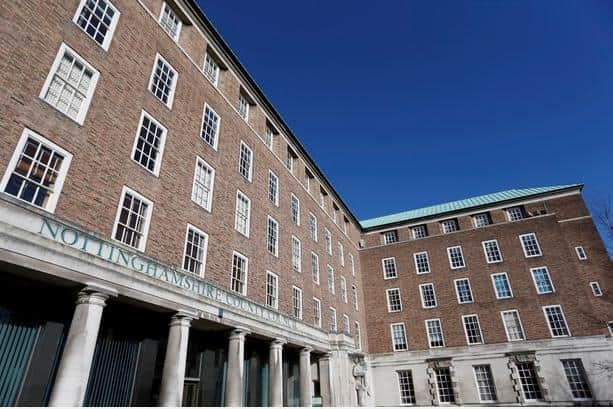End to Universal Credit uplift will have ‘devastating’ impact on almost 60,000 people in Nottinghamshire
and live on Freeview channel 276
The £20 per week boost was implemented during 2020 in response to the coronavirus pandemic – but will end in October, a move which has received widespread criticism.
The Government said that by the end of September, more than £9 billion will have been spent on the uplift, so it is right it is now ‘wound down’ to focus on getting people into work.
Advertisement
Hide AdAdvertisement
Hide AdA motion was put forward to Nottinghamshire County Council by councillors Jason Zadrozny Samantha Deakin asking MPs for their support in reversing the decision.


A council document read: “This council believes failing to maintain the recent uplift will have a devastating effect on 58,770 families in Nottinghamshire at a time when they need financial support the most and will increase hardship and poverty for people who are already struggling.
“Reducing benefits will have an adverse impact on child poverty, other poverty levels and the financial health and wellbeing of people of the poorest in our county.
“In Nottinghamshire, this cut will adversely impact 58,770 families.”
Advertisement
Hide AdAdvertisement
Hide AdWhen the £20 per week uplift ends on October 6, people will lose more than £1,000 a year – or about £86.66 per month.
The council said 8,770 families in Bassetlaw are in receipt of Universal Credit or Working Tax credits.
Nottinghamshire County Council leader Ben Bradley said: “The uplift was only ever intended as a temporary measure.”
He said the end of the uplift should not be seen as a cut and urged residents to seek support if needed.
Advertisement
Hide AdAdvertisement
Hide AdA Government spokesman said: “The uplift was always temporary, to help claimants through the economic shock of the toughest stages of the pandemic and it has done so.
“Universal Credit will continue to provide vital support for those in and out of work and it’s right the Government should focus on our Plan for Jobs, supporting people back into work and those already employed to progress.”
